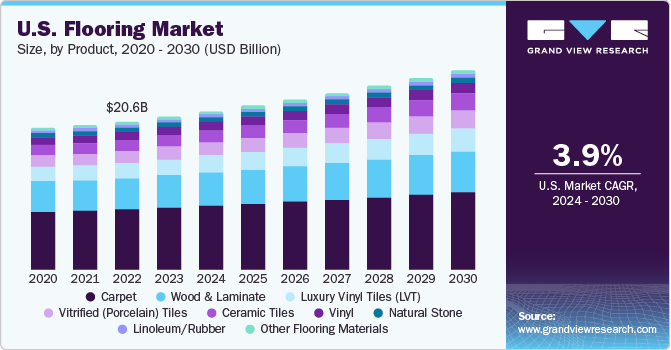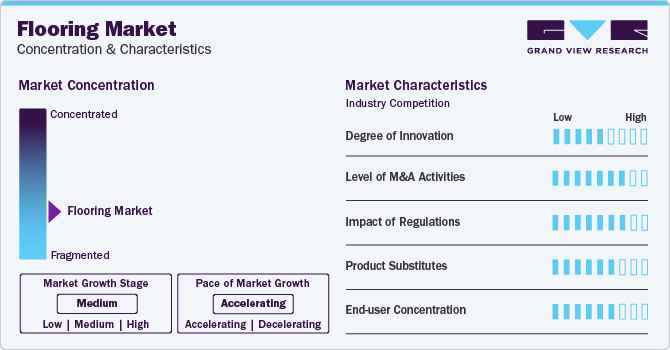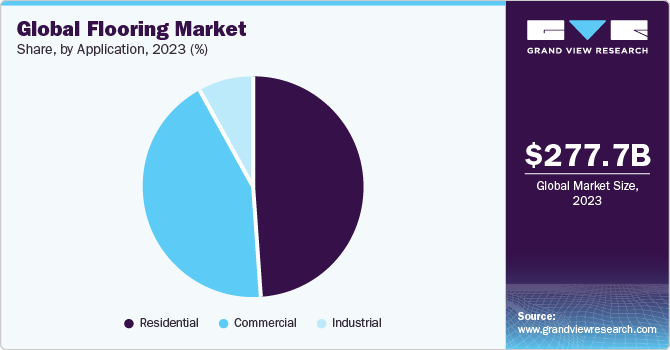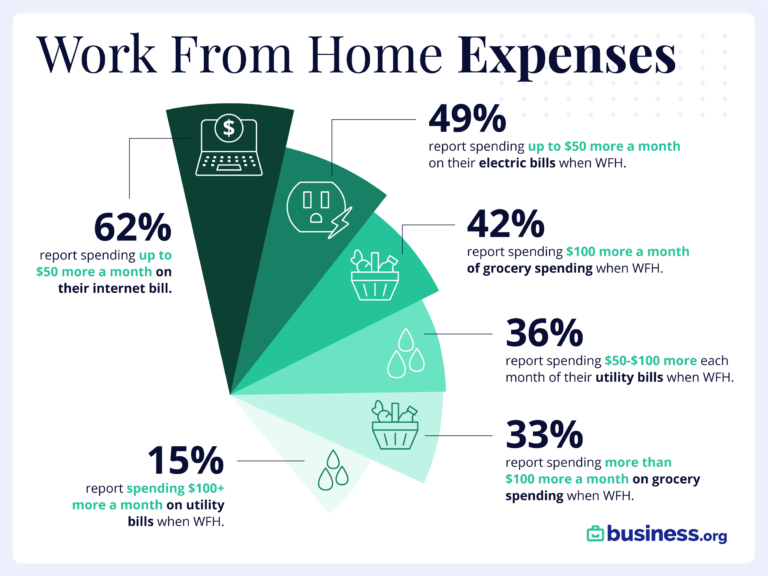The flooring installation industry is expected to grow at a compound annual growth rate of 5.4% from 2023 to 2030. With the housing and commercial real estate markets continuing to expand, demand for qualified and reliable flooring contractors keeps growing.

With low overhead, flexible hours, and strong job prospects, now is an opportune time to turn your construction or contracting skills into a thriving flooring company. With the right preparation and strategy, you can position yourself to capture a share of the industry’s billions in annual revenue.
This guide will walk you through how to start a flooring installation business. Topics include building a business plan through market research, registering an EIN, proper accounting protocols, forming a legal business entity, and more.
1. Conduct Flooring Installation Market Research
Market research is an important step in creating a successful floor installation business. It provides insight into the flooring business industry throughout your area. You’ll learn about local market saturation, your target market, and trends in services and products.

The first step is analyzing national industry trends and forecasts. Current growth aligns with increased housing starts and strong demand from the commercial real estate sector as well. Tying your business outlook to broader economic indicators is crucial.
Drilling down to your specific state and city, you can pinpoint localized demand drivers. For instance, metropolitan areas with lots of new residential and commercial development present prime opportunities. Run Google searches to identify large-scale builds in pre-construction or early phases.
Understand what specific flooring installation skills are most sought-after as well. Specialties like custom tile work, eco-friendly products knowledge, moisture mitigation experience, and concrete subfloor expertise can give you a leg up on competitors. Target additional training here to fill open niches.
In the past, people used to use firewood to heat their homes but an experienced flooring specialist can install heated flooring – a great source of warmth for the tenants and additional profit for the flooring business.
Analyzing permit data can also clue you into hyperlocal demand spikes. Track annual permitting levels through sites like BuildZoom to spot geographical pockets ripe for new flooring contractors. Where lots of renovations and room additions are happening, flooring work closely follows.
Setting competitive pricing is another key preparatory step. Know your average cost of materials, labor, and expected profit margins for standard project types in your area.
By thoroughly analyzing industry growth projections, honing in on your local market, identifying specialty skills gaps, tracking permitting activity, and setting competitive rates, you’ll enter the flooring sector armed with actionable data to capture customers and grow your enterprise.
2. Analyze the Competition
Gauging the competitive landscape is crucial when launching a flooring company. This means identifying other floor installation businesses in your area and assessing what share of the market they control. It also involves evaluating their online presence since most customers now search and vet flooring business owners this way initially.

Start by Googling terms like “flooring installation [your city]” and combing through the results. Document the top 5-10 companies appearing consistently. Visit their websites and social media pages to analyze what services they offer.
Drive around your target neighborhoods as well scanning for yard signs and work vans advertising flooring contractors. Check platforms like Cylex to look up licensed operators by geography. Even boutique players can hold valuable market share locally.
As you compile this competitive intelligence, identify potential weaknesses you can capitalize on. If most incumbents are solely DIY retail installers, your custom design and build capabilities may stand apart. If you spot a lack of eco-friendly and sustainable offerings in your area, leading with these specializations can attract customers.
Evaluating online reviews shows what current pain points homeowners have with flooring jobs too. Where you see recurring complaints around messy installations or budget overages, emphasize your solutions to these issues from the outset.
Essentially this competitor analysis unveils openings to win customers. It also sets a baseline for calibrating your own service offerings, pricing, and messaging against existing market options. With these insights in hand, you can carve out a distinct value proposition.
3. Costs to Start a Flooring Installation Business
Getting a flooring company up and running requires both initial investments as well as budgeting for recurring monthly expenses. Based on professional estimates gathered across the industry, plan for approximately $50,000-$75,000 in start-up costs.
Start-Up Costs
The largest expense when opening your own business is acquiring a well-equipped work vehicle. Cargo vans outfitted with racks, tools, and installation materials can run $35,000-$50,000. Going with a solid used vehicle helps reduce this major fixed cost. allot $15,000-$25,000 for a quality pre-owned van in good shape.
Purchasing specialty flooring tools like power saws, seam irons, knee pads, hammer staplers, and laser levels requires an investment of $3,000-$5,000 as well. Focus first on the essentials you’ll need for everyday installation work before adding advanced gadgets. Quality tools well-maintained can last for years. Expect the tool costs to be higher if you plan on offering additional construction services such as welding or roof construction.
Don’t overlook smaller administrative expenses that add up too like registering your business legally, establishing billing systems, designing a company website, and having professional logos made. Plan on $2,000-$4,000 to cover these operational necessities.
While not technically required, most clients want contractors bonded and insured these days for added peace of mind. General liability coverage starts at around $50 monthly. Basic bonding can cost $200-$500 annually depending on your location and coverage levels.
Finally, think through your basic shop needs as a business owner in the floor installation industry. Even smaller operators require some form of central staging area for materials and equipment. A basic commercial yard lease averages $700-$1,500 monthly. Factor these potential facilities costs in as well.
Ongoing Costs
In terms of fixed monthly budgeting, commercial auto insurance averages $300+ per vehicle. Maintenance costs for vans tally another $150 per month factoring gas, repairs, tune-ups, etc.
Estimate overhead like shop lease payments, equipment storage fees, and utility bills based on your specific real estate situation. These can vary widely based on geographical market but typically fall in the $1,500-$3,000 range for modest operations.
Labor takes up a substantial chunk of monthly expenditures as well. While you may bootstrap solo at first, helper and subcontractor crews scale faster.
Payroll for a six-person installation team easily tops $12,000 per month just on labor. And that doesn’t include healthcare, payroll taxes, worker’s compensation, etc. that add 30-50% on top.
By budgeting smartly around these major fixed and variable expenses from the start, you can control costs as you strive to build a profitable flooring installation empire.
4. Form a Legal Business Entity
When launching a flooring installation venture, one of the first legal steps is determining the best business structure for your goals and level of ownership. The four main options each have pros and cons to weigh for this industry.
Sole Proprietorship
Sole proprietorships represent the simplest and most common entity as they involve a single owner operating under their identity without any formal registration needed. This works well initially since it’s fast and inexpensive to set up. You report all profits and losses on Schedule C of your taxes. It exposes your house, cars, and personal savings to potential lawsuits or claims tied to the business.
Partnership
Forming a general partnership allows multiple owners to share management duties and combine resources and skills. You still don’t create a formally registered business in this scenario though. This makes partnerships inefficient for estate planning around owned assets in the company. And just like sole proprietors, each partner’s assets remain vulnerable to any legal action against the joint business.
Corporation
On the other end of the spectrum, S-corporations and C-corporations establish fully independent legal entities apart from the owners. They require extensive corporate filings, documentation, and board resolutions to operate legally. Their complex tax and ownership structures generally prove overcomplicated and expensive for small flooring ventures though.
Limited Liability Company (LLC)
LLCs offer the best of all worlds for most installation outfits – combining pass-through partnership taxation without personal liability for the members. LLCs limit legal vulnerabilities from accidents, injuries, botched jobs, and other claims solely to the business itself.
5. Register Your Business For Taxes
Before taking on any paying customers, flooring installation companies must register for federal and state taxes to operate legally. The first step is applying for an employer identification number (EIN) through the IRS.
An EIN serves as a unique tax ID tied specifically to your business. Even sole proprietors should obtain one instead of using a Social Security number when filing business taxes. Registering takes just minutes online at IRS.gov.
Simply navigate to the EIN Assistant tool and follow the short application. You’ll need basic information like your LLC’s legal name, address, and ownership structure along with details about your company’s activity. At the end, you’ll receive instant confirmation of your new 9-digit EIN.
From there, you must register with your state revenue office to collect and remit any sales taxes charged. Requirements vary from state to state. In California for instance, you would need to file for a seller’s permit with the California Department of Tax and Fee Administration. Some states may require additional local registrations based on the cities you serve as well.
Research specifics for your geographical areas of operation by visiting your Secretary of State website and searching “register my business” or “business licenses.” Mandatory business taxes range from income taxes and payroll taxes to excise taxes on specific goods.
6. Setup Your Accounting
Running a compliant and financially organized flooring venture requires establishing solid accounting practices from day one. While DIY recording using software works initially, partnering with an accountant and bookkeeper provides assurance you stay on track.
Accounting Software
Accounting tools like QuickBooks allow you to categorize income and expenses, reconcile bank statements, track invoices, automate reporting, and ultimately determine profitability. The key is linking this software to your business bank accounts and credit cards so transactions integrate in real-time. This saves tons of manual entry and reduces human error.
Hire an Accountant
Hiring an enrolled agent or certified public accountant to handle taxes and advise on growth provides peace of mind as well. Expect to invest around $1,000 for annual filing and tax prep services. Though some basic monthly bookkeeping support runs $200+ on top of that fee.
Open a Business Bank Account and Credit Card
Keeping business and personal finances wholly separate also locks in IRS compliance and simplifies recordkeeping. Open dedicated small business checking/savings accounts and apply for a commercial credit card in your LLC’s name using your EIN.
7. Obtain Licenses and Permits
Before taking on paying customers, flooring contractors must secure all required occupational licenses, permits, and insurance at both state and local levels. Find federal license information through the U.S. Small Business Administration. The SBA also offers a local search tool for state and city requirements.
Research specifics for your city and state by searching “[city name] contractor license requirements” and “[state name ] flooring contractor license”. Common credentials like general contracting licenses demonstrate core competencies. However, specialty subclassifications like ceramic tile installation often apply too.
For instance, the Contractors State License Board(CSLB) in California mandates all work valued at $500+ obtain a valid license beforehand. The C-15 Flooring and Floor Covering Contractors category costs $300 initially with a $300 renewal every four years. Candidates must also prove four years of experience plus pass two exams.
On top of state-level credentials, many municipalities add local permitting needs around business activities, vehicle/equipment operation, facility usage, and health codes.
Chicago requires a Home Repair License covering roofing, tiling, and flooring installation priced at $250 every two years. Los Angeles mandates a Tax Registration Certificate for all revenue-generating businesses at $121 annually. And New York City issues Sidewalk Construction Permits for commercial sites.
Check with your city clerk’s office to ask about potential certificates needed for assumed name registrations, zoning permits if leasing a shop, point of sale systems, tools that emit fumes, dangerous equipment operation, etc. Fees range wildly so clarify specifics early.
Also, investigate contractual insurance minimums commonly demanded by general contractors and developers hiring specialty subcontractors like flooring teams. General liability coverage starting at $1 million per occurrence proves typical. Excess umbrella insurance often runs another $1 million atop that.
8. Get Business Insurance
Carrying proper insurance safeguards flooring contractors against potentially company-ending risks. Without coverage, a major incident could sink all you’ve invested in building your brand. Consider how these scenarios could play out:
An inattentive helper accidentally spills wood stain across a client’s new granite countertops during installation, causing $5,000 in damage. Or an improperly secured crate of tiles slides loose inside your van en route to a worksite, injuring a pedestrian walking on the sidewalk.
Each of these entirely plausible events could saddle you with massive legal, medical, and reputational bills without insurance backing. And even one six-figure settlement could bankrupt your unincorporated venture completely.
That’s why securing business insurance tailored to tradesmen tops any flooring pro’s risk management checklist:
- General Liability Coverage shields against 3rd party property damage/bodily injury claims – both on job sites and from broader business operations. Starting around $50 monthly, limits of $500K – $1M prove common.
- Commercial Auto Coverage handles collision damage plus injuries tied to your work vehicles. Expect minimums of $100K-$300K here running $150+ monthly per vehicle. Up supplemental coverage levels based on potential carrier exposures.
- Professional Liability insures against financial harm stemming from service mistakes – like incorrectly measuring a floor before installation. Limits vary widely by underwriter.
- Cyber Insurance plays a growing role too in patching PR crises and data breaches that could sink your digital reputation.
The best place to start shopping plans tailored to contractors is Progressive Commercial using their online quote tool. From there compare pricing through insurance marketplaces like Next Insurance and CoverWallet. Leverage an independent broker like Vertafore for guidance in securing well-rounded protection too.
9. Create an Office Space
Operating a flooring venture from a centralized office provides room for administrative tasks, storage, and meetings that keep field projects running smoothly. The optimal space strikes the right balance of affordability, location access, and professional presence when interfacing with clients.

Home Offices
Converting a spare bedroom into a functional home office costs little to nothing and offers maximum convenience for solo entrepreneurs just starting. Expect to mostly handle paperwork, phone calls, and computer work in a residential setup, however. Larger needs around equipment storage and materials staging require upgrading to commercial spaces quickly.
Coworking Spaces
Joining an open coworking environment like WeWork offers flexible terms of around $300 monthly for contractors needing temporary professional meeting room access or partial office needs. Drop-in desk rentals provide power, Wi-Fi, printing/copying, and front desk services on flexible hourly and daily terms too. However, space limitations restrict equipment storage options.
Retail Spaces
High foot traffic storefronts enable customer walk-ins yet require extensive build-outs, long leases, and prime location rents around $3,000+ monthly. Niche flooring showrooms may benefit from retail visibility. But for most installers focused on selling directly to residential and commercial site project owners, a hybrid office/warehouse suits needs better.
Commercial Offices
Renting modest private office spaces within existing commercial buildings provides the most flexibility to grow over time. Expect monthly rents around $1,000 and up plus added build-out expenses if fully customizing layouts for your operational workflow. The upside includes easy scalability, warehouse access, conference room rentals, and prime locations to meet clients.
10. Source Your Equipment
Successfully outfitting a flooring venture requires specialized tools like power saws, jamb saws, staple guns, nail guns, lasers, table saws, seam irons, and more. Balance purchasing essentials against rental needs for cost efficiency.
New Purchases
Equipping a van or shop fully with new gear from leading brands like DeWalt, Bosch, and Festool carries premium pricing but delivers reliability. Expect to invest $10,000+ on must-have staplers, trimmers, compressors, and accessories for professional-grade work.
Used Purchases
Buying quality second-hand tools through auction sites like eBay, Craigslist, and Facebook Marketplace proves cheaper, albeit without warranties. Search by brand name and piece-by-piece to assemble tool kits hitting all necessary functions while averaging 50% off retail prices.
Rent Equipment
Renting specialty machinery by the day or week from companies like United Rentals makes sense for occasional needs around intricate tile cuts, concrete polishing, heavy demolition/removal jobs, or unique floor prep applications. Why invest $500+ on niche gear used just once annually?
Lease Long-Term
Leasing essential machines over three-to-five-year terms allows breaking large sums into predictable monthly payments. While paying a premium for financing costs, leasing enables accessing higher-grade equipment that pays dividends through millions of lifetime usage cycles.
11. Establish Your Brand Assets
Crafting a recognizable brand identity fuels customer trust and referrals for flooring contractors in a crowded marketplace. Investing in visual assets, contact tools, and an online presence sets companies apart while underscoring their professionalism.
Get a Business Phone Number
Securing an official business phone line through a reliable provider like RingCentral proves foundational. Choose a custom toll-free customer service number and set up call routing to align with your workflow needs. Expect starter plans around $30 monthly.
Design a Logo
Designing a sleek, polished company logo also leaves an impression and builds familiarity over time through repeat exposure. Check out graphic marketplaces like Looka where basic logo creation plans start under $20. Explore simple, bold icon options or modern lettermark approaches that read well digitally and translate to truck signage.
Print smart trifold brochures, vehicle magnets, job site sign boards, and Vistaprint business cards displaying this badge too. When meeting general contractors or giving consultations, branded materials support your professionalism.
Get a Domain Name
Staking your claim online requires buying a custom domain name aligned with your venture as well. Sites like Namecheap provide affordable registration and hosting packages to then build out a digital home base.
Design a Website
While hiring a web developer creates a polished website fastest, DIY builders like Wix offer budget-friendly balance through drag-and-drop simplicity. For those wanting a custom site built without taking on the work themselves, try marketplaces like Fiverr.
12. Join Associations and Groups
Expanding professional networks and trade knowledge is crucial for gaining an industry edge. Tapping local associations, meetups, and niche forums creates connections while revealing insider techniques.
Local Associations
Local Associations Organizations like regional chapters of the National Wood Flooring Association facilitate access to localized training, certification, and known area professionals. Expect fees of around $150 annually for educational and networking events to build local know-how.
Local Meetups
Local Meetups Sites like Meetup allow exploring hobbyist workshops, trade groups, speaking events, and more to expand skills within flooring subspecialties, like epoxy application techniques or hardwood refinishing mastery. Search for options in your state.
Facebook Groups
Vast troves of collective knowledge come together within private groups spanning all facets of flooring. Some focus on industry best practices while others tackle DIY education or showcase beautiful new products and designs. Consider communities like Flooring Contractor Flooring Installation Flooring near me which dishes advice daily.
13. How to Market a Flooring Installation Business
Implementing a multi-channel marketing strategy proves vital for gaining customers amid fierce competition. While word-of-mouth referrals from satisfied homeowners and contractors rank most valuable long-term, laying digital and traditional foundations for lead generation, too, garners visibility.
Tap Your Network First
Leverage existing personal and professional connections as an initial springboard before any paid efforts. Reach out to friends, family members, and previous colleagues who can provide project leads or endorse your skills online.
Offer 10-20% discounts on labor for valued supporters willing to feature the work you complete inside their homes on sites like Instagram and Facebook. Happy beneficiaries advocating for your services reach extended networks driving organic interest.
Digital Approaches
- Run Google Ads campaigns geo-targeting related keywords like “wood floor refinishing [City]” and “tile installation company near me” to connect with searchers. Expect $100-$200 monthly to test various ad variations.
- Boost social media posts showcasing floor makeovers and behind-the-scenes project glimpses to targeted homeowner demographics via Facebook and Instagram advertising. Budget $50-$100 per high-quality post spotlighting work you’re proud of.
- Launch a YouTube channel documenting flooring installations from start to finish. Produce weekly vlogs and before/after reveals to establish DIY authority and showcase abilities.
- Start an email newsletter providing floor care tips, client project spotlights, industry updates, special promos, and more to engage subscribers monthly.
Traditional Tactics
- Print full-color trifold brochures for in-home estimating meetings positioning your reliability and value prop.
- Explore small flooring or home improvement-focused trade publications and niche blogs accepting installer profiles and project contributor stories to build publicity.
- Provide discount mailers in areas undergoing new housing developments and apartment construction advertising site work capabilities.
- Sponsor booths at annual home shows and local conventions to network and collect sales leads through giveaways and demonstrations.
Driving early visibility through diverse channels kickstarts attraction so outstanding service quality and personable rapport transform interested prospects into enthusiastic evangelists.
14. Focus on the Customer
Delivering exceptional customer service proves crucial for flooring contractors banking on word-of-mouth referrals and repeat business to support growth. How you make clients feel before, during, and after jobs directly impacts outcomes.
Go beyond basics like showing up on time and cleaning up properly. Wow, homeowners from the initial in-home estimate arrive prepared with product samples, design magazines, plus packaged promotions to save costs. Ask thoughtful questions about family needs and style preferences to guide choices personalized to their lifestyle.
Post-project follow-up goes the extra mile as well. Conduct final walkthroughs and solicit candid feedback about the experience while addressing any lingering concerns completely. Provide customized care instructions for protecting new flooring upgrades long term.
Then leverage digital tools to stay top of mind by scheduling automated check-in emails at six months and one year post completion asking if they remain fully satisfied. Include token discounts on maintenance services like floor buffing or crack/grout repairs to encourage re-engagement.
